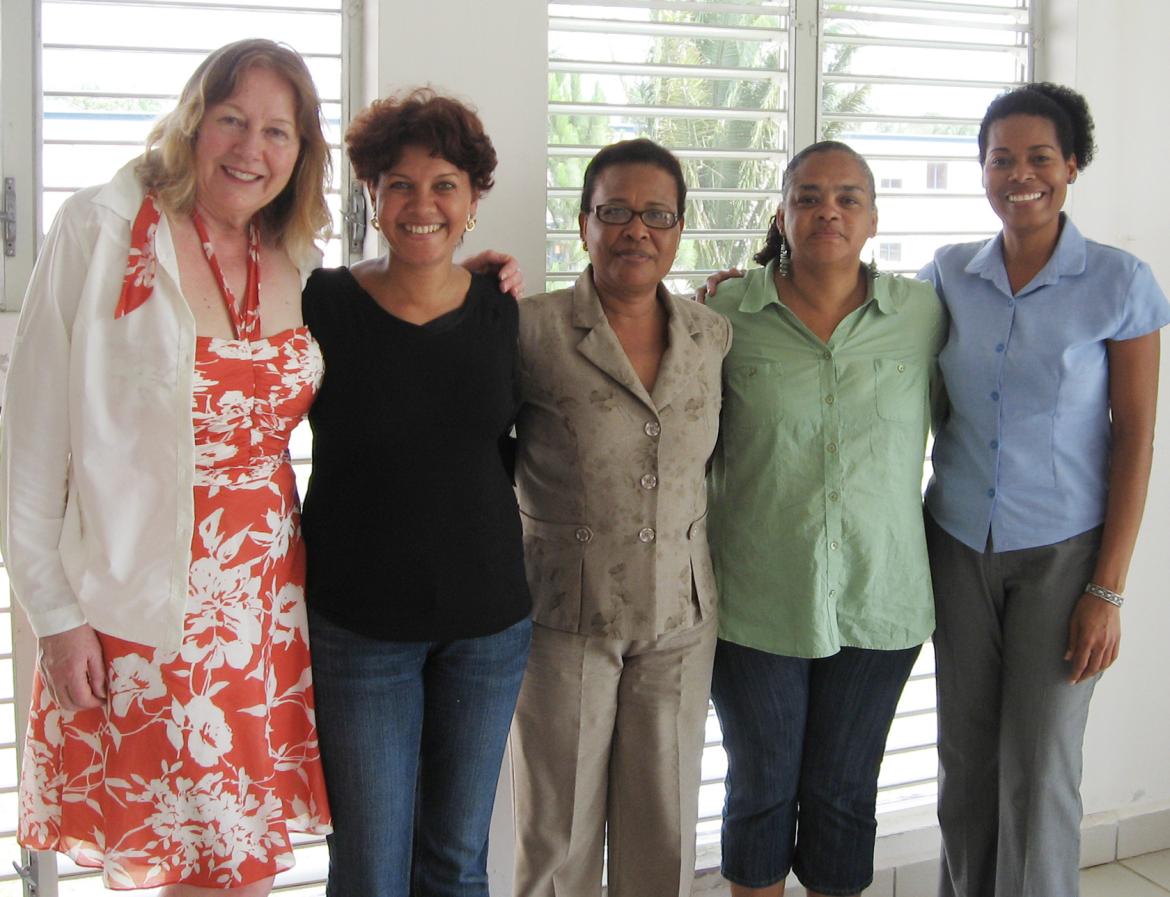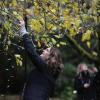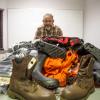
April 23, 2012 - 5:00am
Dale Wik had a strong desire to complete an important task before retiring from her position as co-ordinator of Vancouver Island University’s Writing Centre.
This spring she travelled to Central America with support from VIU Faculty Association professional development funding to assist faculty at the University of Belize in their efforts to establish a Writing Centre at the main campus in Belmopan.
“The University of Belize is trying to do what universities around the world are trying to do – include more non-traditional students in their programs,” says Wik.
“As they reach out to these people who are traditionally under-served, they recognize students need more support,” says Wik.
The University of Belize(UB) was organized in 2000 through a merger of five post-secondary institutions. It has grown from about 2000 students to over 4000 today.
Wik’s connection to the University of Belize evolved through her friendship with Vicky Macfarlane and Larry Wolfe, a Nanaimo couple who divide their time between their homes on Protection Island and Belmopan. Doctors Wolfe (geography) and Macfarlane (psychology) have taught at VIU’s Nanaimo campus and led VIU field projects in Belize in 2007 and 2009. They have also hosted Global Studies interns and hosted or assisted visiting faculty from VIU.
VIU has had a longstanding relationship with Belize, having had field schools (and student internships), through VIU departments of Biology, Global Studies, Geography, Tourism, Education, Physical Education, and Psychology.
In addition to being members of the faculty at the University of Belize in 2002-2003, Wolfe and Macfarlane have been involved in gathering and shipping donated books to the UB Library, helping with special events such as facilitating conferences and evaluating educational upgrading projects.Wolfe has also helped to develop the University’s Strategic Plan, approved in 2011. Wolfe and Macfarlane have been working with several other agencies across the country as well on environmental management, community development, training and facilitation, planning and evaluation projects.
When Wik learned that the University of Belize was looking at the possibility of opening a Writing Centre, she knew she could provide some guidance on the obstacles the proponents might expect as well as support from colleagues at other institutions. Wik has linked UB to the Canadian Writing Centres Association which enables those involved in establishing a fledgling centre to learn from the experiences of others who may have faced similar challenges.
Wik was also able to provide UB officials with a Writing Centre tutor training manual developed by Jo-Anne Andre at the University of Calgary.
“It’s a privilege to consult with our colleagues at UB, but ultimately I know they will succeed on their own merits. I have the highest regard for the knowledge and professionalism of the faculty I met there,” says Wik.
While Wik is retiring from her position at the VIU Writing Centre this spring, she intends to continue supporting U B staff and faculty as they consider options to establish a Writing Centre and promote literacy in the country of 345,000 people.
Wik is also supporting initiatives such as VIU’s offer to refurbish computers for use in Belize and a major project by Wolfe and Macfarlane to implement a disaster mitigation project for four villages in the Belize River Valley. That project is a direct spinoff from the 2009 VIU field school, which explored disaster mitigation options for these villages. The project is funded by the Canada Caribbean Disaster Risk Management Fund, which brought $90,000 CAD to support the Belize villagers.
Wik is inspired by her friends’ dedication to Belize which faces many challenges common to a developing country. “They tell me that because it’s such a small country, anything you do can have a significant positive impact. My goal is to have other faculty members get keen and excited about supporting educational initiatives in Belize.”
Wolfe and Macfarlane have found their experience extremely rewarding.
"After working for the University of Belize for a year as faculty members, we became inspired by assisting in the great work of building a new university,” says Wolfe. “It is the national university, the intellectual centre of a new nation. It seems a good place to make a career contribution."
"We love working with the villages,” says Macfarlane. “This is helping people on the ground. You can see things happening and people's lives improving. Few things can be more rewarding. And, the villagers are really proud of what they have accomplished. We work as volunteers, but the pay is excellent."
On the Web:
VIU Writing Centre:
University of Belize:
Dr. Larry Wolfe’s Belize projects:
Canadian Writing Centres Association:
Photos of Belize River Valley disaster mitigation work:
VIU Bachelor of Education students 2012 practicum in Belize:
Wolfe and Macfarlane suggest ways people can help:
• Belize can use self-funded skilled or educated volunteers or student interns who want to be involved for a few weeks or longer on village or university development work. Opportunities are there for economic development work, social services, education, crime prevention, agricultural development, disaster mitigation, business planning, governance and capacity building, arts and cultural development and more. Email LDSWolfe@gmail.com for more details.
• Donations of laptop computers for villages. Most villages have only a few if any computers. Belizean kids are losing out on the computer/information revolution. We could also use some computer trainers to teach villagers how to use the computers.
• Donations of children’s books and shipping costs if possible to get books to Belizean village children. We have a circuitous route for getting them there cheaper.
• Fundraising or grant writing for village development.
Background on the Belize River Valley:
The Belize River Valley comprises about 10 villages with about 1800 people. This is the original centre of the Creole or Kriol people of Belize, who were brought from Jamaica and elsewhere to work in the logwood harvesting in the 1700s by slaveholders. The economy is based on subsistence and market farming, with production of corn, rice, cashews, cohune oil, sweet peppers, tilapia, beef, chicken, and other crops.
It is also part of the Community Baboon Sanctuary, which is a pioneering effort in a village-managed sanctuary on private lands. The villagers preserve habitat for howler monkeys and other species, which are everywhere in the valley. There are also river tours and other tourism activities. Drs. Wolfe and Macfarlane led a field project from VIU in 2009, which explored how villagers are coping with massive 2008 floods from Tropical Depression 16 which caused widespread flooding in Belize. They subsequently stayed on to apply to Canadian International Development Association’s Canada Caribbean Disaster Risk Mitigation Fund for a disaster mitigation grant, which was received and is being used to upgrade community hurricane shelters, emergency communications, emergency water supply, and other services.
Tags: In the Community






